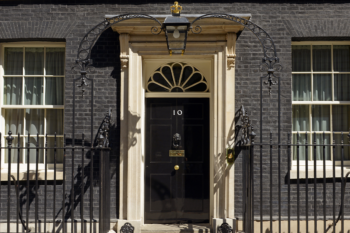 Humanists UK has welcomed the news that a new ‘Bill of Rights’ – a proposed law that would have shredded human rights protections for ordinary people – is to be shelved.
Humanists UK has welcomed the news that a new ‘Bill of Rights’ – a proposed law that would have shredded human rights protections for ordinary people – is to be shelved.
The legislation was due to have its second reading in the UK Parliament next week and, if implemented, would have rolled back a number of provisions within the Human Rights Act 1998 that enable ordinary citizens to challenge the state when their freedoms have been violated. For this reason it has been dubbed by many the ‘Rights Removal Bill’.
Humanists UK has been leading what is to believed the largest UK coalition of groups to campaign on human rights, mobilising over 250 charities, trades unions, and human rights organisations in calling for the protection of the Human Rights Act.
Andrew Copson, Humanists UK Chief Executive, said:
‘Today’s news that the “Bill of Rights” is to be shelved is very much welcome.
‘This Bill rightly attracted criticism from all quarters in the UK and internationally, with the UN stating that its introduction would “undermine the enjoyment of human rights”. It would have made it very difficult for ordinary people to challenge the Government in circumstances where they experienced discrimination, weakening freedom and democracy in our country.
‘We hope the Bill does not return at all in any form.’
Impact on the non-religious
The Human Rights Act 1998 currently means that public bodies and the courts are able to read additional words into laws and policies, where this is required in order to uphold human rights.
In particular, where a law or policy just refers to religion, this must be understood to include non-religious beliefs, even though those words are not written in the law or policy itself.
Therefore the Act makes it possible to stop such laws and policies discriminating against the non-religious in areas like education, pastoral care, or public service provision without anyone having to go to court. And if someone does have to go to court, the court can then fix the problem without the public authority having to change the policy, or Parliament having to amend the law.
Indeed, there have been countless instances where individual humanists have won equality for the non-religious without having to go to court. This includes challenging the exclusion of humanists from the bodies that set RE syllabuses and securing the provision of humanist and non-religious pastoral care in prisons and hospitals.
Removal of other key human rights protections
The shelved Bill – vigorously championed by former Deputy Prime Minister Dominic Raab and labelled as a Rights Removal Bill by critics – would also have introduced ‘a permission stage in court… requiring people to show they have suffered a significant disadvantage before their claim can go ahead.’
This is despite courts already having an admissibility process, providing adequate safeguards against frivolous litigation, whereby claimants need demonstrate that their claim has a ‘reasonable prospect’ of success. Instead of safeguarding against people bringing time-wasting cases to court, the Bill would have simply placed another barrier in the way of ordinary people seeking justice.
The Bill would have also weakened the links between UK courts and the European Court of Human Rights in Strasbourg. This change was likely to result in a lower standard of protection for UK citizens, and, therefore, more claimants seeking redress in the Strasbourg court rather than their own national courts. The additional costs and delays involved in taking a case to Strasbourg is prohibitive for most claimants resulting in a reduction in the power of UK citizens to hold the Government to account.
Notes:
For further comment or information, media should contact Humanists UK Press Manager Rob Pett at press@humanists.uk or phone 020 7324 3072 or 020 3675 0959.
Read more about our comments on reform of the Human Rights Act.
Read more about our coalition.
Humanists UK is the national charity working on behalf of non-religious people. Powered by 100,000 members and supporters, we advance free thinking and promote humanism to create a tolerant society where rational thinking and kindness prevail. We provide ceremonies, pastoral care, education, and support services benefitting over a million people every year and our campaigns advance humanist thinking on ethical issues, human rights, and equal treatment for all.
